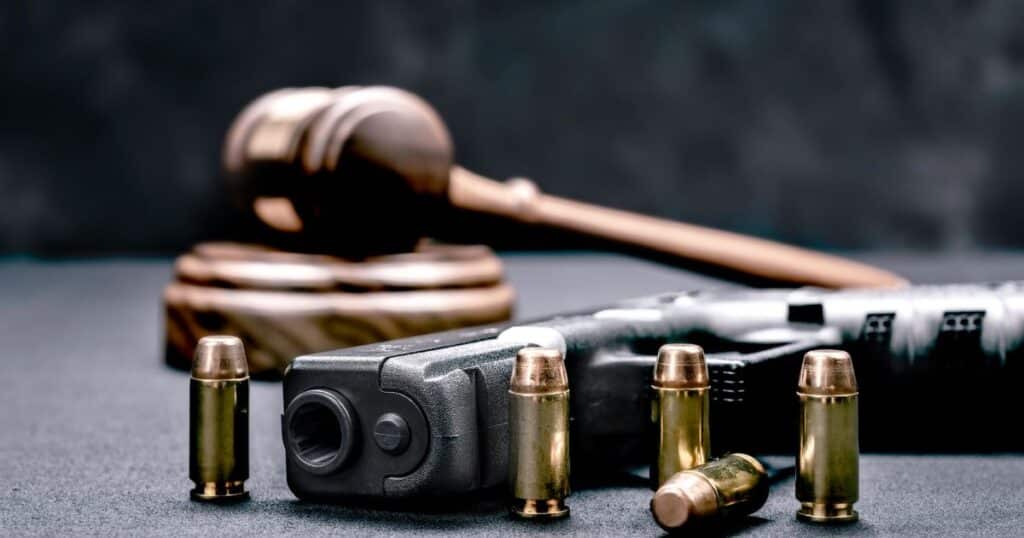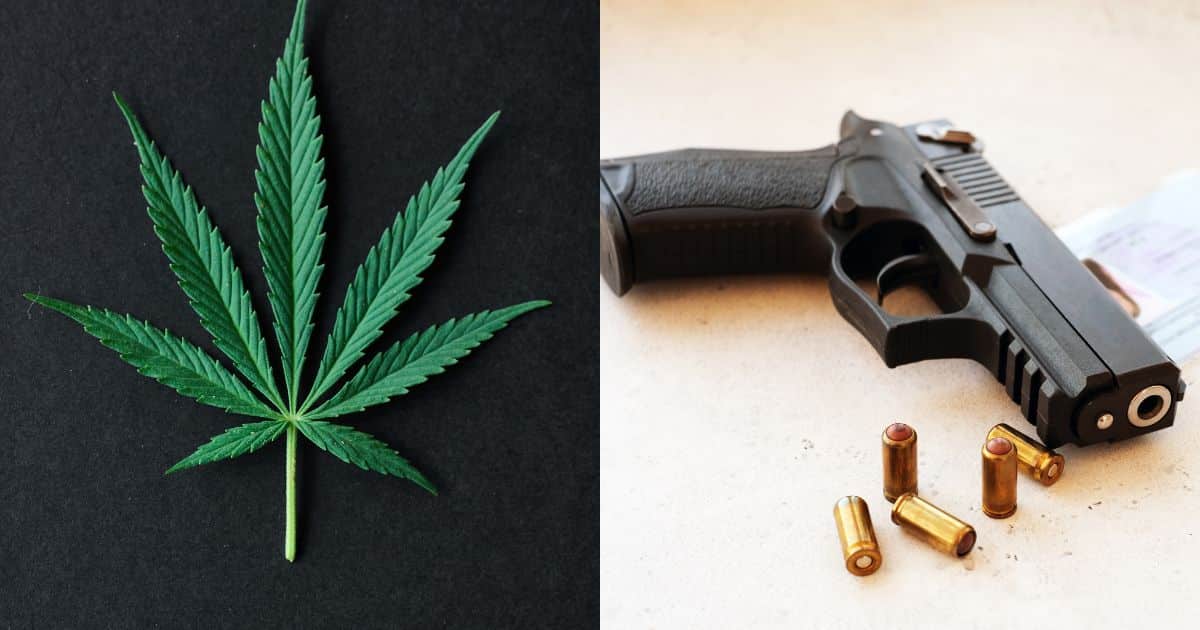The intersection of cannabis use and firearms may seem like an improbable legal battleground, but for many medical marijuana patients, it has become a pressing issue of constitutional rights. The Maryland Senate has thrust itself into this conversation by passing Senate Bill 348 aimed at safeguarding the Second Amendment rights of individuals using cannabis legally for medical purposes.
This action doesn’t just advance the discourse on individual liberties; it also signals a shift in how states may choose to protect their citizens against federal overreach.

As more states across the U.S. legalize the use of cannabis, either medically or recreationally, the question of how these changes interact with existing federal statutes becomes crucial — especially for those who own firearms or wish to do so.
Current federal law stipulates that any user of a controlled substance, including cannabis currently, is barred from owning or possessing a firearm. This blanket prohibition, part of the Gun Control Act of 1968, has been a sticking point for medical marijuana patients who argue that their rights are being unfairly restricted.
At the heart of the issue is the discrepancy between federal and state cannabis laws, with states choosing to decriminalize and regulate marijuana within their borders while federal law, as it stands, maintains its Schedule I classification.
For Second Amendment advocates, the situation raises fundamental questions about the right to self-defense and due process. Whereas medical cannabis is recognized and prescribed within state-sanctioned medical programs, these patients are effectively disenfranchised when it comes to their right to bear arms.
Maryland’s Senate Bill 348
The Maryland Senate’s recent passage of Senate Bill 348 brought forth by Senator Mike McKay (R) represents a significant step forward in securing firearm rights for patients using medical cannabis in the state.
The bill, which passed last week with an overwhelming majority vote of 43-2, states that, under Maryland law, a person cannot be denied the right to purchase, own, possess, or carry a firearm solely based on their authorized use of medical cannabis.
For the countless individuals who have found relief in medical marijuana treatments, this legislation provides a sense of normalcy and complete participation within their rights as Marylanders. It acknowledges the medicinal utility of cannabis in treating a range of health issues and rectifies previous state laws that might have penalized these individuals for seeking alternative medical pathways.
However, the path to amending gun ownership rights for medical marijuana patients is not without obstacles. The federal stance on the matter remains unchanged, and the evolving landscape puts states and individuals in a complex dance with federal law enforcement agencies.
Following its success in the Senate, Senate Bill 348 advances to the Maryland House of Delegates, marking the next crucial phase in its legislative journey. If the bill secures approval from the House, it will ascend the legislative ladder, aiming for enactment. Should it pass these hurdles, the law is slated to go into effect on October 1, 2024.
The Case for Equal Treatment?
Advocates for the integration of medical cannabis and gun rights argue for equity in the treatment of cannabis compared to other substances. Alcohol, for example, is a legal and regulated intoxicant whose use does not preclude an individual from wielding Second Amendment protections.
Cannabis is now legally prescribed in many states for a range of ailments (and now even the government recognizes its medicinal value) where traditional medicines have fallen short, implying that the user’s danger potential with a firearm is not necessarily heightened.
By recognizing the legitimacy of medical marijuana uses, legislatures are called upon to consider the individual circumstances of cannabis users. A one-size-fits-all approach, advocates assert, neither respects nor reflects the complexity of individual cases, further calling into question the fairness of current firearm restrictions on medical marijuana patients.
Maryland’s move holds national implications, particularly as the debate on gun control, healthcare, and states’ rights continues to take center stage. It serves as a precedent for other states to take action in protecting the rights of medical marijuana users and may influence the conversation at a federal level.
The collective voice of states modifying policies to reflect the will of their citizens could catalyze change in outdated federal statutes, perhaps signaling a need for more nuanced regulations at the national level.

The passage of Senate Bill 348 in Maryland highlights the power of individual states to assert authority over legislation that directly affects their citizens, even when at odds with federal law. It is a moment for medical cannabis users and Second Amendment supporters to advocate for consistent and equitable laws that respect both state determinations and the constitutional rights they uphold.
Overall, while the confluence of gun rights and medical cannabis is fraught with complexities, Maryland’s recent legislative action illuminates the possibilities for harmonizing state and federal laws.
The conversation must continue, with a focus on protecting the rights and wellbeing of individuals navigating the nexus of medical treatment, legal cannabis use, and fundamental constitutional protections. It’s a clarion call for engagement, education, and advocacy in a realm where personal freedoms are not just negotiated but constitutionally guaranteed.
- Delaware’s Recreational Cannabis Market Finally Set to Launch After Years of Challenges
- Excise Tax Increase to 19% and Its Impact on California Retailers
- Nebraska’s Governor Approves Emergency Medical Cannabis Regulations
- We Must Advocate for Fair and Accurate Marijuana Impairment Testing Policies
- The Global Roots of Plant Medicine: Why Cannabis Has Always Been Part of the Plan
- Hawaii’s HB 302 Becomes Law After Governor’s Unexpected Reversal














